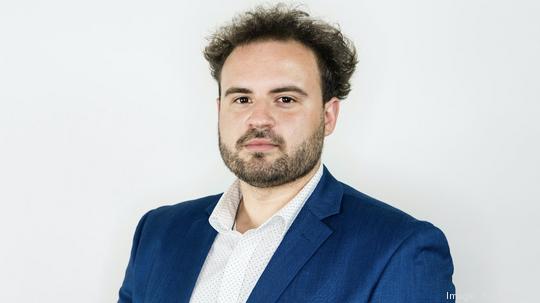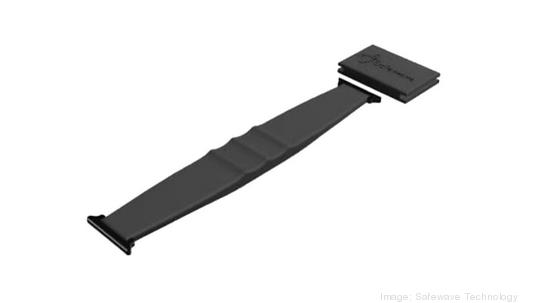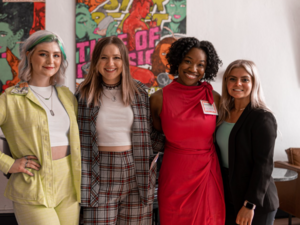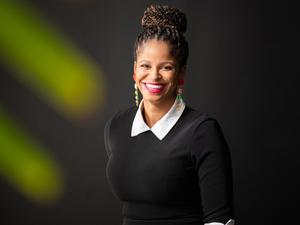
Trevon Bruch was sound asleep when a fire alarm went off. Fortunately, everything was fine, but he was left thinking, "What if?"
"I realized I was lucky because if I didn't hear it, who knows what might have happened?" Bruch said. "That made me dig a little deeper."
That's somewhat of a natural response from someone with an entrepreneurial spirit, sparking the idea for what would become Safewave Technology, which is launching its vibration-based wristband that links to mainstream security systems and fire alarms in June.
Bruch, a Covington, Kentucky native, is a veteran entrepreneur, having founded his first startup in 2016 while attending Eastern Kentucky University. That company, a campus navigation solution, didn't pan out, but it helped Bruch discover his passion for solving complex problems.
"At the end of the day, it drove my creativity," he said. "I knew I wanted to create something that could help people."
Fast forward to the fire alarm incident in 2018, Bruch and his friend Jared Gabbard started researching to see what kind of vibration-based wristbands were available on the market for people who are deaf or hard of hearing. Bruch, who isn't deaf himself, was surprised they couldn't find anything.
According to the World Health Organization, millions of people are living with disabling hearing loss. The organization also estimates that nearly 2.5 billion people are projected to have some degree of hearing loss by 2050.
That's a massive portion of the population that won't be able to hear tradition alarms or alert systems using sounds. Currently, there are several visual alert signalers, such as flashing lights, but those only work if someone is awake to see them.
Bruch said it was Zac Strobl, assistant director of Northern Kentucky University's Center for Innovation & Entrepreneurship, who encouraged him to pursue the concept for a wristband in 2019.

"At first, he said, 'Man, that sounds too generic — it sounds too simple to be real,'" Bruch said. "But then he came back a week later and said he couldn't find anything similar to what we were trying to create."
Bruch and Gabbard co-founded Safewave Technology that same year, filing for provisional patents and participating in NKU's INKUBATOR, 12-week business accelerator that helps participants bridge the gap between concept and a business. Strobl also helped the company get a spot in TCU's Values and Ventures competition in 2019, solidifying Bruch's excitement to build in the startup space.
"I'm from a single-mother household and I'm the first person in my family to go to and graduate from college, so I had never seen anything like that event," Bruch said. "I think I just fell in love with it. Even though it was just a pitch competition, it felt good — it felt like I was making an impact."
Bruch went full-time with Safewave in January 2021, putting aside his handful of other business concepts for the time being. Last year, the company competed in Mortar Covington's pitch competition, winning the $1,500 people's choice award, and it was also selected for SoCap Accelerate, a program that connects health-focused startups with social capital.
Outside of that $1,500 grant, Safewave was completely bootstrapped until two months ago when it received a $35,000 investment on a $1.75 million valuation cap, Bruch said. That was the challenging part of creating a wearable device — funding the development and testing of the technology itself.
Now that the product is ready to be released, Safewave is seeking $250,000 in a fundraising round to build out its team. In the meantime, Bruch looks to get the word out that the product exists, traveling to DeafNation Expo in Rochester, New York, and Minneapolis, Minnesota, in the coming months, in addition to targeted social media advertising.
"We're doing pre-sales right now and if we sell x-amount of units, we should be able to fund ourselves," Bruch said. "The $250,000 would just help things move faster and more efficiently."









